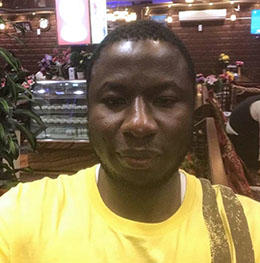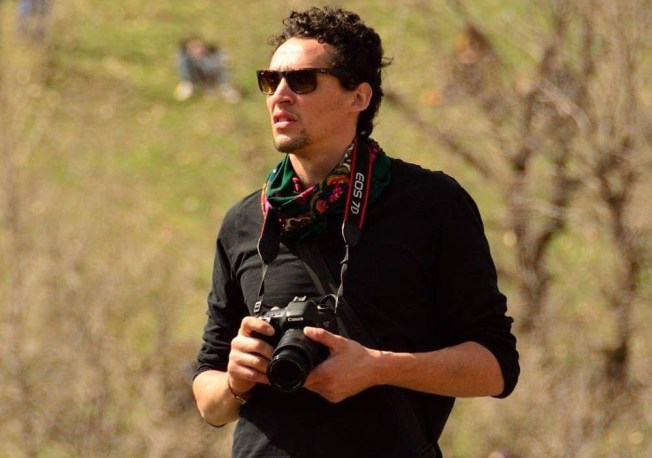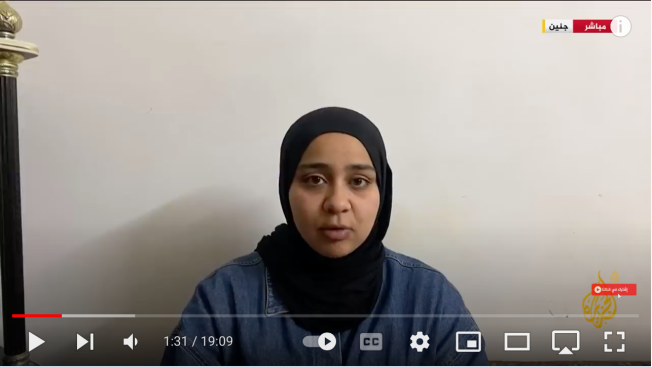Is it the government’s responsibility to make mullahs? So, I ordered them to immediately put a stop to these businesses (dukans) of mullah-producing madrasas. An official said, “Sir, there will be a huge issue (bawal).” But I told him that let such small issues happen, I would deal with it. But these madrasas should be immediately closed down. In Assam, I closed down over 700 madrasas. No one had the guts to raise any issue with it…
…Wherever she (Mamata Banerjee) sees mullahs, she starts reading namaz right then and there…
Love Jihad used to happen in our place. They use a Hindu name on Facebook, and after marriage, it is disclosed that they are not Hindu. I’ll break their legs if they make duplicate accounts with fake names on Facebook…you can’t misguide our daughters and do Love Jihad…
I want to tell Didi that our country is a Hindu nation, so if one has to stay here then one must learn to stay here like a Hindu. It was Hindus who had created this nation…
In speech after speech this election season, Assam chief minister and BJP leader Himanta Biswa Sarma has openly targeted the Muslim community with rabidly communal language and on the other hand, exploited religious sentiments by raising the issue of the Ram Mandir, in complete disregard to the Model Code of Conduct. The above are just a few examples.
Buoyed by the Election Commission of India’s (ECI) failure to clamp down on the violations, Sarma has villainised Muslims by talking about ‘Love Jihad’, ‘Land Jihad’ and the demolition of the Babri Masjid in Ayodhya. He has repeatedly referred to the community with the denigrating term ‘Mullah’. In several speeches, the Assam chief minister credited PM Modi with the construction of the Ram Mandir and urged voters not to be satisfied with it, as the saffron party, according to him, had plans to build Gyanvapi temple in Varanasi and Krishna temple in Mathura. Following in the footsteps of PM Modi, Sarma also referred to Muslims as ‘ghuspetiyon‘ (infiltrators) and termed madrasas as ‘mullah-producing organisations’ during his Jharkhand rally on May 15.
In one of his speeches, Sarma took a jibe at Congress and questioned the religious identity of Sonia Gandhi, depending on which, Sarma said, she would be allowed entry to the Ram Mandir. In almost all the speeches that Alt News followed, he targeted the Opposition by claiming that if voted to power, they would give reservation to Muslims. In another one, she said West Bengal chief minister Mamata Banerjee would start offering Namaz whenever she saw a ‘mullah’.
Several parties have written to the poll panel drawing its attention to the model code violations by Sarma. Assam Congress chief Bhupen Kumar Borah wrote to chief election commissioner Rajiv Kumar stating that Sarma had “willfully” and “deliberately” violated the model code of conduct in his campaign speeches. The Assam state unit of the Trinamool Congress complained to the ECI regarding Sarma’s hate speech in Jharkhand (documented below). The Jamiat Ulama-i-Hind also appealed to the poll panel to take cognizance of the divisive speeches delivered by him in Bihar on May 18 (documented below). However, the ECI is yet to act on these complaints. Alt News has already reported how the election commission’s double standards have empowered BJP leaders to make brazen violations of the poll codes.
Following are a few excerpts from Himanta Biswa Sarma’s speeches:
Barasat, West Bengal, May 19
1:12:00: “When you gave 300 seats to Modiji, Modiji constructed the Ram Mandir, didn’t he? Ram Mandir was built in place of Babri Masjid, right? When Modiji won 300 seats, did he not abrogate Article 370? When Modiji won 300 seats, did he not pass the CAA rules? There were three temples in India. The first one was to build Ram Mandir in the place of Babri Masjid. Babar had destroyed the original Ram Mandir and built Babri Masjid in its place. Even in Mathura, which is the birthplace of Lord Krishna…Aurangzeb had built Shahi Idgah in its place.’’
1:13:08: “And even in the case of Baba Vishwanath, even in front of the Vishwanath temple, it was this Aurangzeb…. Be it Aurangzeb, Shah Jahan or Sandeshkhali’s (Sheikh) Shahjahan…they are all the same, this is their habit. Aurangzeb also built the Gyanvapi mosque over the Gyanvapi temple. When we got 300 seats, we built Ram Mandir. If we win 400 seats this time, we will construct Krishna Mandir in Mathura and also build the Gyanvapi temple in place of the Gyanvapi mosque. This is why you should vote for Modiji and make him win by 400 seats.”
1:14:00: “There are 26 per cent of Muslims in Bengal and 36/37 per cent in Assam. But I also mingle with them, eat with their mothers and enquire about their well-being. And then I ask some of them that I am unable to manage one wife, unable to give her enough time because I am a busy politician…but how are you (Muslims) are able to manage 4 marriages? First, you marry one, then you marry a second one, and then a third one and then a fourth one! One should think about what goes on in the hearts of these wives…one should think that in a family of one mother when two, three and four mothers come, how much painful it must be for those mothers. When Modiji is re-elected as the Prime Minister this time, this business of doing polygamous marriage will be put to a stop. We will not allow this business anymore.”
1:18:43: “A CM like Mamata Banerjee knows nothing except appeasement politics, wherever she sees mullahs, she starts reading namaz right then and there.”
Buxar, Bihar, May 18
7:55: “I want to tell you that although Ram Mandir has been constructed, we still have a lot of work to do. Is the Krishna Janambhoomi complete yet? The Shahi Idgah is still there on the land of Krishna Janambhoomi in Mathura, is it not? The Gyanvapi masjid in Benaras is still located in front of the Baba Vishwanath temple, is it not? Hindus are not just satisfied with the construction of the Ram Mandir. We need Krishna janambhoomi, we also need Gyanvapi temple…and this is why you should vote for Mithilesh Tiwari.”
8:45: “I meet people from the Muslim community and ask them that I can barely manage one marriage, how can they manage four marriages? Think about it, one man will marry their first wife, then five years later, will bring the second wife, then after 10 years they will bring the third wife and 15 years later, the fourth wife. What will happen to the first wife? Will she not be in pain?… This business of doing four marriages should be stopped.”
16:00: “I asked the President of Maharashtra Congress Committee, Nana Patole, ‘What is the religion of your Congress President, Sonia Gandhi? First, tell us if she is a Hindu or a Christian. After that, we will decide if she has the right to enter Ram Mandir or not.”
17:30: “Hindu temples create a large amount of employment, which even the Indian government cannot provide to that extent. Look at how the Ram Mandir in Ayodhya has created lakhs of job opportunities. In Assam, the Kamakhya temple also led to a rise in employment. Tirupati temple in Tirupati has also given jobs to people…Laluji asks, “Why are you building temples?” If temples are closed then crores of people will lose their jobs, which you (Lalu Yadav) won’t understand. Mosques don’t create jobs, churches don’t create jobs. But our Hindu (temples) in Kedarnath, Badrinath, Vaishnadevi, Ma Kamakhya, Gaya and Ayodhya give jobs to crores of people.”
19:58: “I said, “Is it the Government’s responsibility to make mullahs? So, I ordered them to immediately put a stop to these businesses (dukans) of mullah-producing madrasas. An official said, “Sir, there will be a huge issue (bawal).” But I told him that let such small issues happen, I would deal with it. But these madrasas should be immediately closed down. In Assam, I closed down over 700 madrasas. No one had the guts to raise any issue with it.”
21:37: “This election is not about Mithilesh Tiwari. This election is about building the Krishna temple in Mathura. This election is about building the Gyanvapi temple in Benaras. This election is about implementing the Uniform Civil Code…We only have to focus on one thing. We have to make sure that Modiji wins by 400 seats and along with the chants of ‘Jai Shree Ram’, we also have to build the temple on Krishna Janambhoomi.”
Giridih, Jharkhand, May 15, 2024
5:17: “Infiltrators are entering Jharkhand and are forcefully marrying advasi women. These Muslim infiltrators are again becoming citizens of Jharkhand and are grabbing lands in Jharkhand. In some places, these people are also dreaming of becoming citizens. When these infiltrators first entered Assam, we did not pay much attention to them. First, they came in one thousand, then two thousand and then five thousand…we did not pay much attention to it. But now the population of these (Muslim) infiltrators have risen to 36% in Assam. They came in thousands, and then in lakhs and now they are in crores. Today, we (Hindus) have to fight daily for our existence. The same thing has just started in Jharkhand by the Congress.”
6:32: ”Once these infiltrators start entering the nation, it will only take 20 years to destroy the state. 20 years later, you’ll see how the demography and the population of the state start to change. I want to tell the people of Jharkhand that we (Hindus) are victims today. Today, we (Hindus) are minorities in 12 zilas of Assam. We should stop Jharkhand from becoming like this.”
10:22: ”We (BJP) don’t do communal politics. Saving Muslim women from talaq is not communal politics. This is social justice. Saving Muslim women from their husbands’ torture is not communal politics. This is called social justice, which we have to make Congress understand.”
Referring to the arrest of Jharkhand minister Alamgir Alam for a money-laundering case, Sarma says at the 10:55 mark, “Such huge amounts of money are only found in Alamgir Alam’s house. Do you have Rs 30 crore in your homes? Does any Ram, Kedar or Annapurna possess Rs 30 crore in their house?…If Rs 30-35 (crores) are found in one Alam’s house, imagine how many Alamgir Alams are there in this country who have hundreds of crores of cash stocked in their home.”
Begusarai, Bihar, May 11, 2024
13:00: “Love Jihad used to happen in our place. They use a Hindu name on Facebook, and after marriage, it is disclosed that they are not Hindu. I’ll break their legs if they make duplicate accounts with fake names on Facebook…you can’t misguide our daughters and do love jihad.”
15:08: “Muslims should get reservations in Pakistan, not in India…Our reservations are for scheduled castes, scheduled tribes and OBC. There can be no reservation for Muslims…We need 400 seats so that no Lalu Yadav or Rahul Gandhi can misuse the OBC reservation and allocate it to Muslims.”
19:25: “If Congress wins, they will bring back Babri Masjid. We should not be satisfied with the Ram Mandir. Babar and Aurangzeb have done a lot of things. We have to overturn all those things done by Babar and Aurangzeb…We have to build a nation which is based on Hindu culture.”
Barrackpore, West Bengal, on May 10
13:53: “Mamatadi challenges Modiji, but does Mamatadi have the power to demolish Babri Masjid and then build a temple on it? The Babri Masjid was there for 500 years and now Modiji built a Ram Mandir in its place. Does (Mamata) Didi have that power? I haven’t seen it. I haven’t seen any of Didi’s power.’’
22:00: “(Mamata) Didi might say that these BJP people don’t know anything besides Hindus. But first, I want to tell Didi that our country is a Hindu nation, so if one has to stay here then one must learn to stay here like a Hindu. It was Hindus who had created this nation. No one can now do injustice to Hindus, or else the country will never progress.’’
25:43: “We just recently finished the building of Ram Mandir, but we still have a lot of work to do. Our work is not finished yet. We have to build the Gyanvapi temple in the place of the Gyanvapi mosque in Kashi. We still have a lot more work to do. We’ve just built the Ram Janambhoomi, but we still have to build Krishna Janambhoomi. Brothers and sisters, although the pran-prathisthan of Ram Lalla has taken place (in Ayodhya Ram Temple), we still have to make sure that no Babri Masjid is rebuilt again in the place of Ram Lalla. We have to make sure of this.’’
The post ECI turns a blind eye to rabidly communal speeches by Himanta Biswa Sarma appeared first on Alt News.
This content originally appeared on Alt News and was authored by Abira Das.
This post was originally published on Radio Free.








